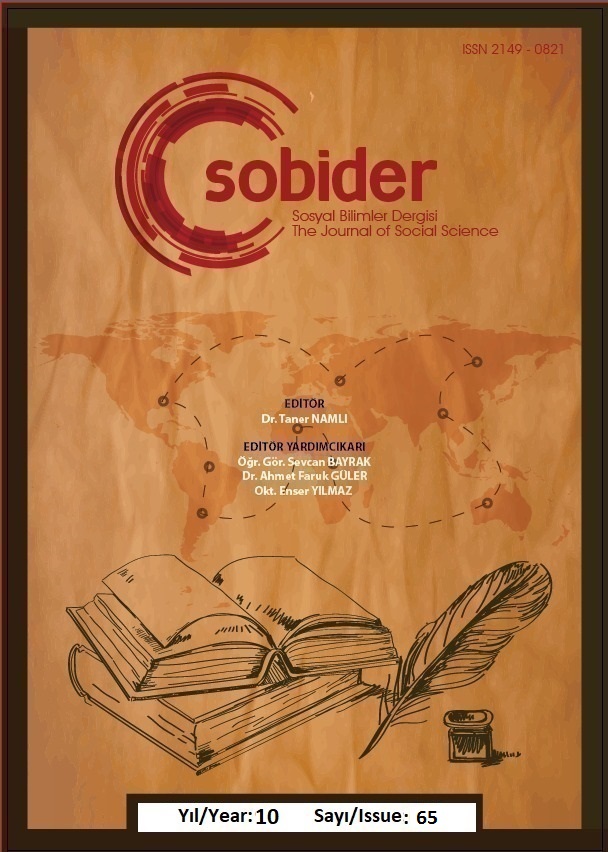Author :
Abstract
Anarşizm siyasi düşünce tarihinde birçok farklı şekilde yorumlanarak ele alınmaktadır. Bu farklılığın nedenine bakıldığında anarşizmin temel savunusu olan özgürlük kavramıyla karşılaşılır. Özgürlük kavramı insanı konu alan her alanda bir problem olarak açığa çıkmaktadır. Bu problemin merkezde olduğu dönemlerden biri de Aydınlanma dönemidir. Fakat Aydınlanmanın Kartezyen özne merkezinde mutlak akılcılık anlayışıyla ortaya koyduğu özgürlük düşüncesinin sonradan meta anlatılarla iktidar ilişkisine dönüşmesi postmodernizmin anarşist söylemiyle tek tip birey ve toplum anlayışını ortaya koyması nedeniyle eleştirilmektedir. Bu noktada anarşizme bakıldığında özgürlük amacı doğrultusunda iktidar olmaksızın toplumun ve düzenin mümkün olabileceği anlayışına sahip olduğu görülmektedir. Anarşizmin bu anlayışı ise anarşizmi kendi içinde iki eğilime ayırmaktadır. Anarşizmin iktidar olmaksızın bireyin/toplumun nasıl düşünülebileceği sorusuyla girdiği düzen arayışında bireyci ve toplumcu olarak iki eğilim göstermektedir. Bu durum ise anarşizmi bireyin ve toplumun nasıl düşünülmesi gerektiği noktasında liberalizm ve sosyalizme yakınlaştırarak eklektik bir yapıya sahip olmasıyla sonuçlanmaktadır.
Keywords
Abstract
Anarchism has been interpreted in many different ways in the history of political thought. When we look at the reason for this difference, we come across the concept of freedom, which is the main defense of anarchism. The concept of freedom emerges as a problem in every field that deals with human beings. One of the periods in which this problem is at the center is the Enlightenment period. However, the transformation of the idea of freedom, which the Enlightenment put forward with the understanding of absolute rationality in the center of the Cartesian subject, to power relations with meta-narratives, is criticized with the anarchist discourse of postmodernism because it reveals a uniform understanding of individual and society. At this point, when we look at anarchism, it is seen that it has the understanding that society and order are possible without power in line with the aim of freedom. This understanding of anarchism, on the other hand, divides anarchism into two tendencies. Anarchism shows two tendencies as individualist and socialist in its search for order with the question of how the individual/society can be thought without power. This situation results in anarchism having an eclectic structure by bringing it closer to liberalism and socialism in terms of how the individual and society should be thought
